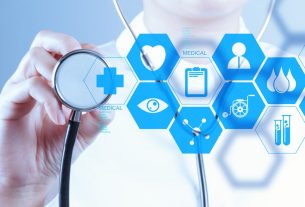Egg donation is a part of assisted reproductive technology, and it is when a woman donates her eggs to another woman to help them get a baby. It is one of the measures that women with fertility problems may consider. Egg donation may benefit women who need to preserve their fertility before breast cancer treatment or may be a solution to Houston infertility. Donors usually need ovarian stimulation, which involves medication to help them produce multiple eggs. After the follicles are mature, the doctor uses a needle to draw the eggs from the ovary.
When would I need an egg donation?
Most women who require egg donation cannot get pregnant using their eggs. For example, women in their menopause or those born without ovaries may benefit from egg donation. Sometimes, assisted reproductive technology may be an option if you have poor egg and embryo quality. If you have a genetic disease that you don’t wish to transfer to your child, you may also consider egg donation.
Preparing the recipient for embryo transfer
The donor’s stimulation and the recipient’s womb should be in sync when embryos are ready for implantation. If you are the recipient and you still have a regular menstrual cycle, you will need drugs to stop your cycle. As your donor takes medications to stimulate her ovaries, you will take estrogen to prepare your uterus lining. Once the donor is ready for the egg retrieval process, you will take progesterone to facilitate implantation. Your doctor then transfers the embryos in your uterus a few days after fertilization, after which you will still need to take hormonal medications. After you test positive for pregnancy, you continue taking the hormones during the onset of the first trimester.
How does the donor get ready for egg retrieval?
Before identifying a donor, your fertility facility conducts a thorough selection process to ensure that you get a suitable donor. Several tests are necessary for the donor to ensure they do not have any viral and bacterial infections. Depending on the donor’s ethnic background, specialists may recommend genetic testing. Next, a donor takes medication to stop their menstrual cycle, which may cause side effects such as hot flashes, fatigue, body ache, and headaches.
Since specialists recommend retrieving several eggs, a donor takes fertility medications that stimulate the ovaries to produce multiple eggs. Since this medication is administered through an injection, there might be mild bruising at the injection site. As reported by previous donors, other side effects include breast tenderness and mood swings. In rare cases, hyperstimulation results in serious problems such as ovarian hyperstimulation syndrome.
The fertility drugs make a donor more susceptible to pregnancy, so doctors advise abstinence or barrier contraceptives like condoms. During this period, a donor may require frequent hospital visits for monitoring.
What are the possible risks of egg donation?
It is rare for a donor or the recipient to develop complications during the process. The procedure is similar to IVF, and so are the risks. Some patients may react to anesthesia, bleed, and rarely get their bladder and bowel damaged.
If there’s more you’d like to learn about egg donation, consult with your doctor at Memorial Women’s Specialists.




